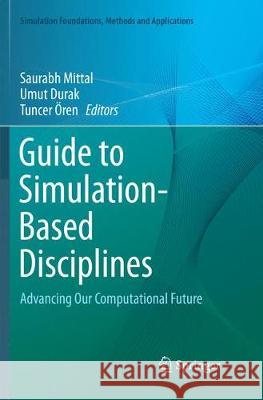Guide to Simulation-Based Disciplines: Advancing Our Computational Future » książka
topmenu
Guide to Simulation-Based Disciplines: Advancing Our Computational Future
ISBN-13: 9783319870366 / Angielski / Miękka / 2018 / 370 str.
Kategorie:
Kategorie BISAC:
Wydawca:
Springer
Seria wydawnicza:
Język:
Angielski
ISBN-13:
9783319870366
Rok wydania:
2018
Wydanie:
Softcover Repri
Ilość stron:
370
Oprawa:
Miękka
Wolumenów:
01











